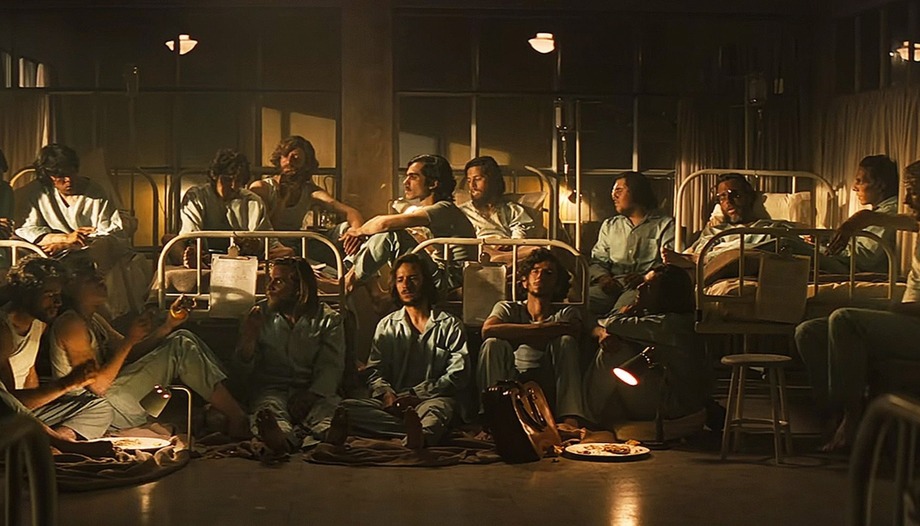The last supper that Jesus shared with his apostles shortly before being tortured and executed must be one of the most represented banquets in history. What we know of that meeting brings together very suggestive elements: the thirteen diners, the institution of the Eucharist, the imminence of the Passion, the complicity of John, the betrayal of Judas, the somewhat reckless audacity of Peter, even the menu rehearsed for centuries by the pious Jews.
Many artists have been inspired by the evangelical scene to create paintings, sonnets, stained glass windows, performances or symphonies. Probably, everyone was or is aware that something extraordinary happened there, that in that meeting of friends God had an outstanding role, that he did something unsuspected for men, for us. That is why we Christians attach so much importance to it.
Among the most recent representations, the one composed by Juan Antonio Bayona in a very subtle way for the final scene of The snow society. The 16 survivors of the Fairchild are still convalescing in an overflowing Chilean hospital while their families travel excitedly from Uruguay to join them after 72 days. They are starving, dazed and happy. They allow themselves to be washed and driven from one place to another, one smiles gratefully to the young nun who is healing him, another seems absorbed in his memories as they remove the layers of clothing that have allowed him to survive in the mountain, a third receives his girlfriend and his parents radiantly. And when it seems that the luminous glances of all of them are about to give way to the credits, they suddenly gather in a room, sit close together around the four beds plunged in the twilight and silently bid the viewer farewell with this very elegant tribute -they too- to Leonardo da Vinci and, above all, to the dinner that another group of friends shared two thousand years ago with the Son of God in the "great hall" of a private house in Jerusalem.
I don't know why Juan Antonio Bayona wanted to end his extraordinary film in this way, I suppose the story that appears in the book had something to do with it. The snow society about the moment when the young rugby players who had survived the initial accident discuss the possibility of feeding on the bodies of their dead teammates.
Pedro Algorta undoes the prejudices and apprehension of almost everyone else with a reflection directly related to the Last Supper: "Isn't the sacrament of communion just that, eating the body of Jesus Christ to receive God and eternal life in our hearts? Years later, when he recalled that decisive moment, he summed it up poignantly: "Our friends had died so that we might continue to live. We were obliged to feed on their flesh. It was not simple cannibalism, but an act of enormous love.
That is exactly what it is about: an "enormous" act of love. Jesus was saying goodbye to his disciples in the face of his imminent passion, but he "invented" an unsuspected way of staying: the Eucharist. He did it to give himself completely, to continue to be close to us, to be accessible for ever and ever. That is why it is said of the Eucharist that it is a mystery of love.
A few months ago, a 16 or 17 year old girl from Seville told me that she usually goes to mass every Sunday with her parents, and that also in the parish and at school they advise her to do so, and that she has taken it for granted, but that deep down she does not know why mass is so important.
-What happens at Mass so that everyone reminds me that it is worth going? -I wanted to know.
I could have answered him at length and documented, but at that moment the first thing that came to my mind was another question:
-Can you imagine if every Sunday you were invited to join the Last Supper?








